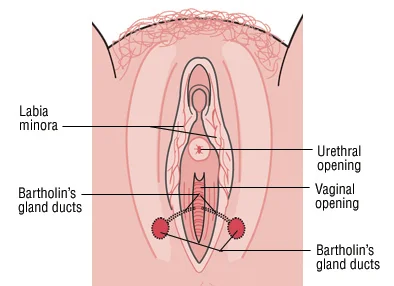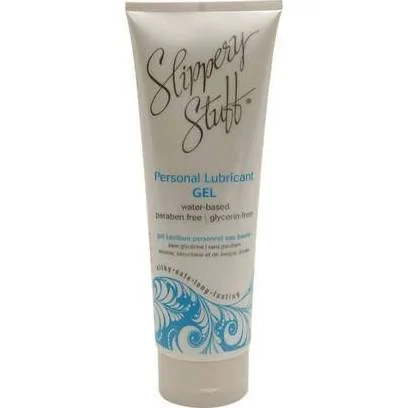Oh lubricant, the spicy of sex. I'm not sure about you, but the only info I got about lube came exclusively from awkwardly watching KY commercials on TV and whatever my girlfriends and I could scrounge up from personal experience/Cosmo. But there is so much more to lube!
I think it's important to point out that lube can be an addition to an already fabulous sex life, it does NOT have to be an emergency only option. There is nothing wrong with using lubricant during sexual activities, whether as an adjunct to your body's own lubrication, or to change the sensations/experience of sex!
Let's first start with a quick overview of how the female body produces lube naturally.
Masters & Johnson documented that lubrication can be seen on the vaginal wall within 10-30 seconds of a woman becoming aroused! As you become aroused blood flow increases to the clitoris, vulva, and vagina. This increase in blood flow, known as vasocongestion, helps to fill up the tissues as a sort of cushioning to sex and creates "sweating" in the vagina. No, not like Just-had-a-long-workout sweating, but more like the outside of a cold glass of water. The increased blood flow is essentially pushing out fluid normally found between your cells, which makes up lube. The Bartholin's Glands (located below and to each side of your vaginal opening) produce lubrication as well. This "natural lube" is made up of mucus, carbohydrates, amino acids, proteins, and other acids produced by the normal lactobacillus bacteria in your vagina.
The glands are beneath the surface of your skin and are not visible unless they become swollen.
Lubrication helps to decrease friction, which typically = more comfort/enjoyment. Too much friction can lead to soreness of you and/or your partner, especially during penetrative sexual activity. It also helps to prevent condom breakage.
Sexual lubricants are one of the most commonly used intravaginal products. Reports vary from 25% use with condoms to 73% use during sexual activities. Older women are more likely to use lube, which is a bummer because I think everyone should understand when and how to use lube! Especially since using lube has been associated with having a higher level of sexual pleasure (both with a partner and solo) and being able to orgasm easier.
General Tips
1. Shop online! Supermarkets carry lube, but typically have a pitiful supply of options. Another benefit of online shopping? You can read reviews (particularly on Amazon) of the product you are looking at.
2. Travel sizes are your best friend. Right along with #1, if you are trying any lubricant for the first time, get a travel size. You can sample it without committing to a big bottle of a product you may or may not like. Once you do find a great lube -- stock up! Pro tip: pump handles on lube = less mess and more control over amount administered. (You're welcome).
3. Not all lubes are created equal. I hate to say it, but you get what you pay for. And a $3 lubricant from the grocery store... is, well... a $3 lube! There are many high quality lubricants out there. If you experience any irritation from one lubricant than I recommend you try another, not right after of course! Wash off, see your doctor if the symptoms persist, try again when you are symptom free.
The Specifics
Ok! Ready to dive in?! Lubricants are classified according to what they are made from. You should be able to find this printed somewhere on the packaging or bottle. The three types are water based, silicone based, and oil based.
Water based lube
Water based lubricants are a great option with the majority of toys and condoms because they do not react with the silicone. They do tend to wear off quicker than silicone and oil based lubricants, so you may need to reapply.
These types of lubes tend to easily wash off of sheets/clothes without leaving any stains. Water based gels can also be an alternative for any of you with sensitive vulvas which may be more reactive to additives in lubricant.
Pro tip: if you have experienced irritation in the past, try a glycerin free lubricant like the one pictured above. We suspect that glycerin may be the culprit of irritation as it has been associated with yeast infections. Find what works for you!
Silicone based lube
Silicone lubricants can elevate penetrative sex, providing a silky finish and lasting much longer than water based options. This does mean that they can be a bit harder to wash off.
Generally, silicone lubricants are NOT recommended for use with silicone toys, because if the types of silicone react with each other it can degrade the toy which can lead infections. They may also break down a condom which could lead to the spread of sexually transmitted diseases or pregnancy.
Oil based lube
This includes coconut and olive oil. While coconut oil has many purported health benefits, there is no research regarding it's use as a lubricant. If you have been using it without any irritation or issues, then you may be fine to continue using it. If you try it and experience irritation, then as with all lubricants, please discontinue use and try another alternative. A con of oil based lubricants is that they are the most likely to stain sheets/clothing (just like any oil stain would) and are much more difficult to wash off.
I would recommend that as far as olive oil goes... let's leave it to the garlic bread and chicken, not your genitals.
Bottom line: There's more to lube than meets the eye.
If you learned something new, be sure to pass the info along!
This post was updated on February 13, 2018.
Resources
Assessment of Introital Lubrication. Dawnson et al, 2015, published in Archives of Sexual Behavior.
Motivations for Intravaginal Product Use Among a Cohort of Women in Los Angeles. Brown et al, March 2016, published in Public Library of Science.













